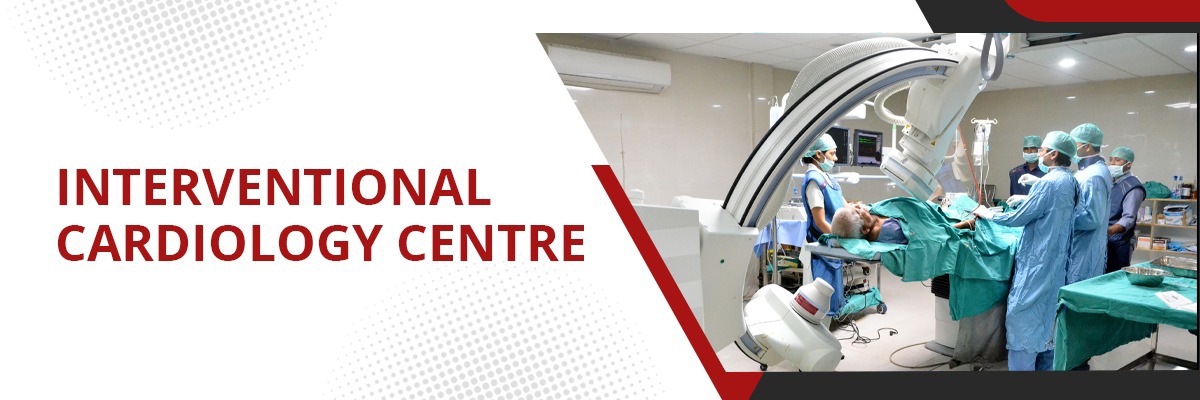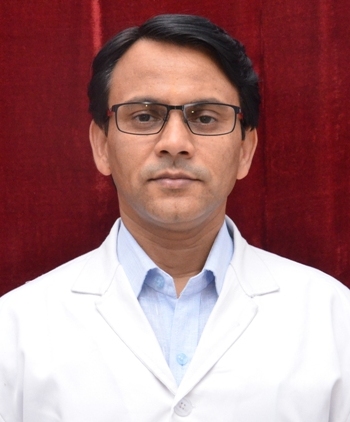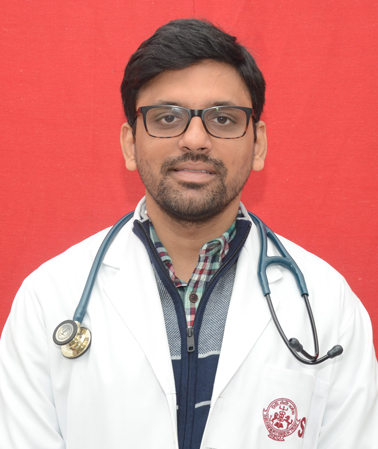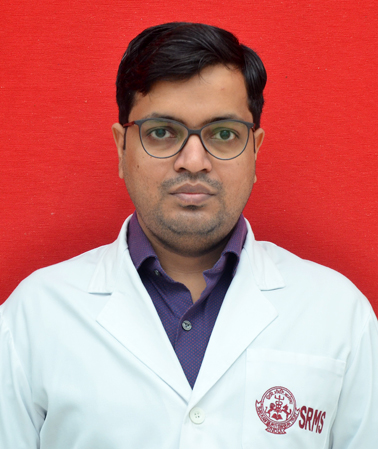
About
The Department of Cardiology boasts of a faculty that is nationally and internationally recognized in treating various cardiovascular conditions including atrial fibrillation, interventional cardiology, and heart failure. Solidly backed up by a dedicated team, the department has a unique reputation for personalized yet sophisticated cardiovascular care. All patients are offered the latest in devices and other interventional therapies. All the diagnostic facilities are available in cardiac department including Stress Echo and Trans esophageal Echo. The department runs one of the busiest OPDs in the hospital. A 11 bedded ICCU , 6 bedded CCU and 15 bedded cardiac ward is being run by dedicated and tireless staff.
Services & Facilities
At SRMS Hospital in Bareilly, we are dedicated to providing state-of-the-art interventional cardiology services to ensure the best possible care for patients with cardiovascular conditions. Our Interventional Cardiology department is equipped with advanced technology and staffed by highly skilled medical professionals, all working together to deliver comprehensive and compassionate care. Here are some of the key services and facilities we offer:
Diagnostic Procedures:
- Coronary Angiography: Visualizing blood vessels to detect blockages and assess blood flow.
- Intravascular Ultrasound (IVUS): High-resolution imaging to analyze vessel walls and plaques.
- Fractional Flow Reserve (FFR): Measuring blood pressure differences to assess the severity of blockages.
Interventional Procedures:
- Percutaneous Coronary Intervention (PCI): Non-surgical treatment of coronary artery disease, including angioplasty and stent placement.
- Primary PCI: Immediate treatment for heart attack patients to restore blood flow and minimize damage.
- Complex Coronary Interventions: Handling multi-vessel disease and intricate cases.
Structural Heart Interventions:
- Transcatheter Aortic Valve Replacement (TAVR): Minimally invasive valve replacement for aortic stenosis patients.
- Mitral Valve Repair: Innovative techniques for repairing the mitral valve without open-heart surgery.
Electrophysiology Services:
- Electrophysiological Studies (EPS): Diagnosing arrhythmias by mapping the heart’s electrical activity.
- Radiofrequency Ablation: Treating arrhythmias by targeting and eliminating abnormal electrical pathways.
Peripheral Interventions:
- Peripheral Angioplasty and Stenting: Opening blocked arteries in the legs, arms, and other peripheral areas.
- Atherectomy: Removing plaque buildup from peripheral arteries using specialized devices.
24/7 Emergency Care:
- Rapid response team for acute cardiac emergencies, ensuring timely intervention.
- Fully equipped catheterization lab operational round the clock.
Advanced Imaging:
- High-quality cardiac imaging, including 2D and 3D angiography.
- Intravascular imaging techniques for precise lesion assessment.
Experienced Team:
- Expert Interventional Cardiologists, Electrophysiologists, and support staff.
- Collaborative approach with Cardiothoracic Surgeons for comprehensive care.
Patient-Centric Care:
- Individualized treatment plans based on patient’s condition and medical history.
- Focus on patient education, pre-procedure counseling, and post-procedure care.
Cutting-edge Technology:
- State-of-the-art catheterization labs with advanced monitoring and imaging systems.
- Utilization of latest interventional devices and tools.
Rehabilitation and Follow-up:
- Cardiac rehabilitation programs to aid recovery and improve long-term outcomes.
- Regular follow-up appointments to monitor progress and adjust treatment as needed.
Treatments
Coronary Angioplasty and Stenting: This procedure involves using a catheter to open blocked or narrowed coronary arteries. A stent (a small mesh tube) may be placed to keep the artery open and improve blood flow to the heart.
Coronary Atherectomy: This procedure involves using a catheter with a rotating blade or laser to remove plaque buildup from coronary arteries.
Balloon Valvuloplasty: Used to treat narrow heart valves (stenosis) by inserting a catheter with a balloon on its tip into the valve and inflating the balloon to widen the valve.
Percutaneous Coronary Intervention (PCI): A broader term that includes various procedures to treat narrowed or blocked coronary arteries using catheter-based techniques. This includes angioplasty, stenting, and atherectomy.
Transcatheter Aortic Valve Replacement (TAVR): Used to replace aortic valves in patients who are at high risk for open-heart surgery. A new valve is inserted through a catheter and positioned within the native valve.
Closure of Atrial Septal Defect (ASD) or Patent Foramen Ovale (PFO): Catheter-based closure of holes between heart chambers, which can lead to abnormal blood flow.
Electrophysiology Studies and Ablation: Used to diagnose and treat abnormal heart rhythms (arrhythmias) by mapping the heart’s electrical pathways and selectively destroying abnormal tissue using catheter-based techniques.
Intravascular Ultrasound (IVUS): An imaging technique using a catheter with an ultrasound probe to visualize blood vessels from the inside, aiding in accurate diagnosis and treatment.
Fractional Flow Reserve (FFR) Measurement: This test assesses the severity of coronary artery blockages by measuring blood pressure and flow before and after the blockage.
Chronic Total Occlusion (CTO) Intervention: Techniques to treat complete blockages in coronary arteries, often requiring advanced skills and equipment.










